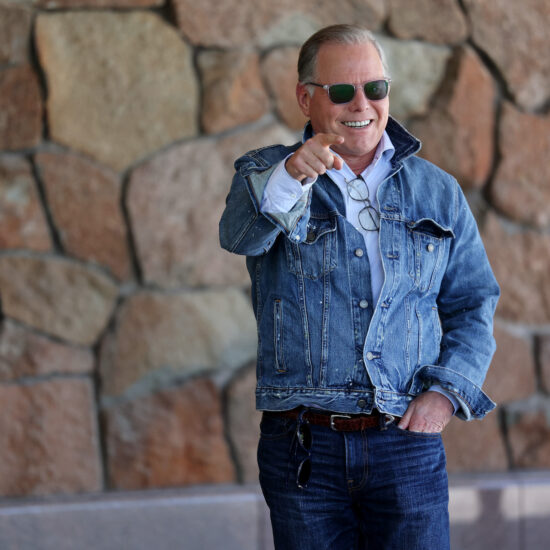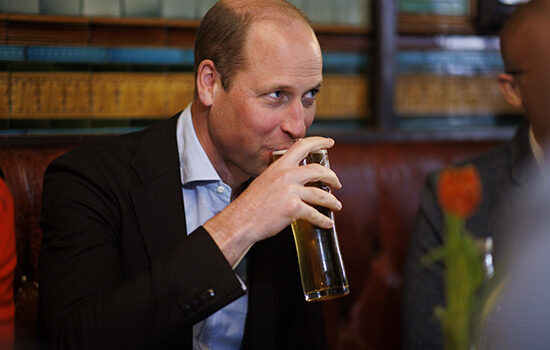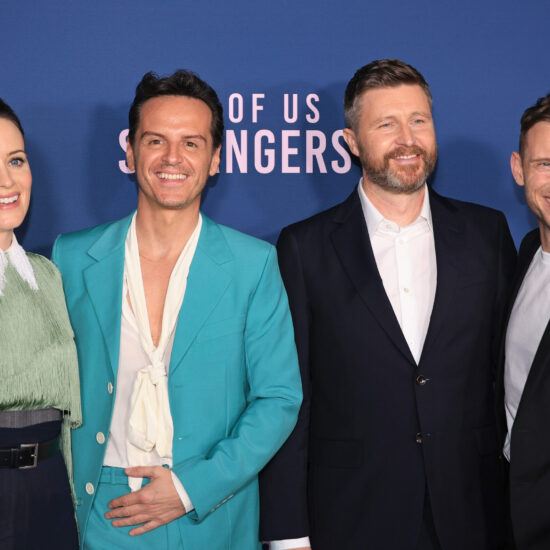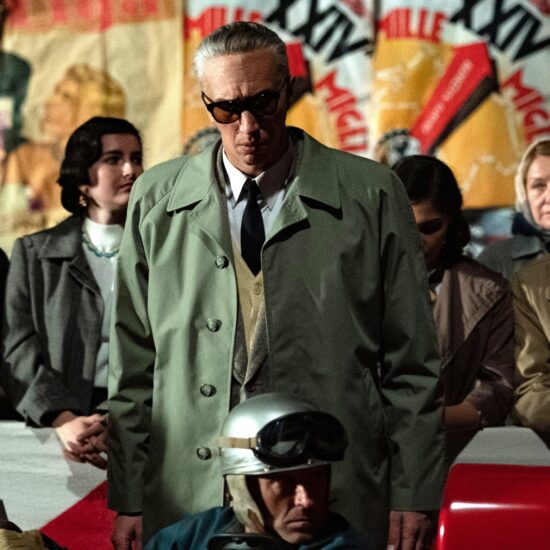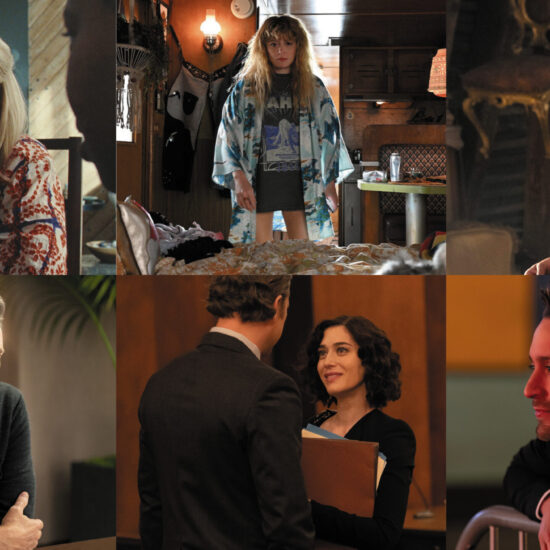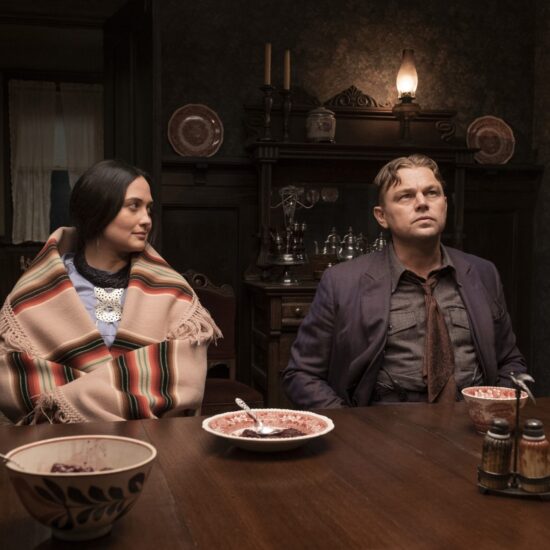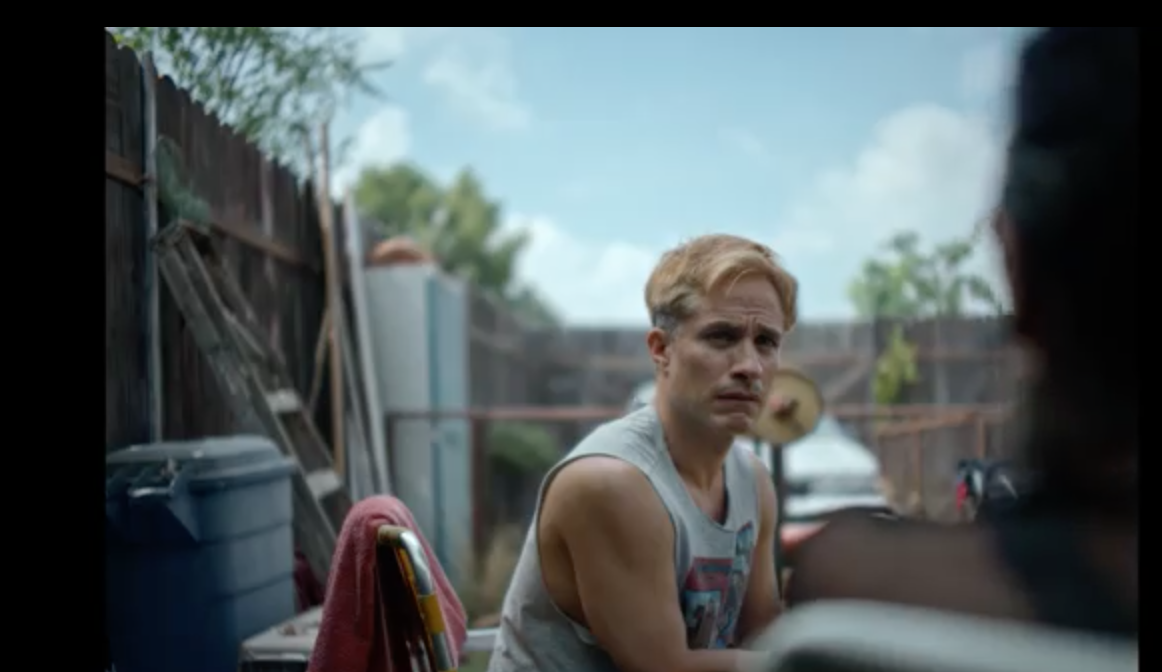
There are a few documentarians who dabble in feature filmmaking: R.J. Cutler (“If I Stay”), Matt Heineman (“A Private War”), even Werner Herzog (there are many). To their ranks we can now add Oscar-winner Roger Ross Williams (“Music By Prudence”), and he’s all in on making it work.
At Telluride, Williams screened his well-reviewed Sundance feature “Cassandro” (September 15, Amazon Studios); saw the world premiere of “Stamped from the Beginning” at the Toronto International Film Festival (November 15, Netflix); and Apple TV+ will air his four-part docuseries “The Super Models” September 20.
It’s an eclectic and vibrant collection of work and none of it was straightforward or easy. “Cassandro” is based on the true story of Luchador Saúl Armendáriz (Gael García Bernal in a career-best performance) who finds his true identity as the cross-dressing El Exotico on the Mexico wrestling circuit. Williams met his subject on the Amazon documentary short “The Man Without a Mask” (2016).
“I knew that story inside out,” he told me. “We went to Juarez, one of the most dangerous cities in the world due to the cartels, where there was a huge Lucha Libre match. The show starts in this huge stadium with 1,000 people and ‘I Will Survive’ comes on: That’s his theme song. And he’s in full drag. And he comes up to stage, people are holding their kids up to him. He’s kissing them. People are loving him, and they’re all singing ‘I Will Survive,’ and I burst into tears. I was lost. ‘Man, I gotta gotta harvest this magic.’”
Williams fell for Armendáriz. “He had this beautiful, incredible inner life,” he said. “He was so inspiring, but he was also charismatic. And I saw that an actor who was equally charismatic could harness that and it could be an incredible character study on the screen.”
Discussing the idea of who might portray Cassandro, he and his documentary crew determined the perfect actor. Cut to: Williams, then a governor for the Academy’s documentary branch, stalking Gael García Bernal at Academy events. When the agents finally set up a meeting, the actor immediately agreed to play the shape-shifting gay man in a male world who confronts machismo head-on and wins by embracing his own identity.

It took years to get the script into shooting shape and Williams turned to his “Life, Animated” editor David Teague. He’d never written a script, but Williams told Teague: “Editing is writing in documentary. So you’re an incredible writer.”
It took several tries to get the script into the Sundance Screenwriters Lab. Williams was crushed when he was rejected, but he kept trying and got into both the writing and directing labs. “I created an over-the-top spectacle movie and wasn’t seeing the true heart of the movie, the relationship with his mom and his father,” he said. “It’s a deeply personal, emotional story.”
During the directors’ lab, Williams found a more naturalistic tone that let the emotional scenes carry the fun wrestling performances. He shot in Mexico City, which kept the budget down to $10 million.
“It was really crafted in the edit with Affonso Gonçalves [‘Carol’],” Williams said. “It was amazing to see what he could do. He could change the whole tone of the scene and calibrate a performance.” Inevitably, “Cassandro” wowed audiences at Sundance 2023 and again at Toronto, building Oscar buzz for Garcia Bernal.

Williams can’t stop working. He founded a Brooklyn production company, One Story Up Prods., after his “Life, Animated” was nominated for the 2018 documentary feature Oscar. He produces many projects that he does not direct and loves promoting BIPOC talent like cinematographer-turned-director Nadia Hallgren (“Civil”).
Williams pushes people into new experiences. “I made a very clear mandate that the company is made up of mostly filmmakers who don’t have the same opportunities,” he said. “The buyers were calling me: ‘If you can vouch for them and mentor them and oversee them, we will take the project.’”
Some projects pay the bills, such as “The Super Models” and Donna Summer documentary “Love to Love You, Donna Summer” (HBO Documentary) co-directed with Summer’s daughter Brooklyn Sudano. Producers Fabienne Toback and Karis Jagger brought in Williams to direct the well-regarded food series “High on the Hog: How African Cuisine Transformed America,” which generated a 6,000-word profile in The New Yorker.
And Williams, Oprah Winfrey, and Pulitzer-Prize-winner Nikole Hannah-Jones collaborated on the hugely popular Hulu Originals docuseries “The 1619 Project,” based on “The 1619 Project” initiative created by The New York Times Magazine. That yielded not only an additional ABC two-part special featuring the two episodes directed by Williams, but also a podcast with 40 million listeners.
Netflix documentary “Stamped from the Beginning” is a hybrid documentary/scripted feature adapted Ibram X. Kendi’s National Book Award-winning bestseller “How to be an Antiracist” that took off during the George Floyd “Black Lives Matter” movement. “[The book] defined America’s racial reckoning,” said Williams. “It’s very American. And everyone in the world is asking, ‘What is going on?’”

In the movie, the people who answer that question are not only Kendi but Black women historians and academics who guide viewers through reenactments of well-known and obscure historic figures such as Harriet Jacobs (Alexa Rachelle Jennings) as well as vivid animation and illustrations of racist tropes and imagery. “When I was doing research, the people doing this work on racism in America were Black women at Harvard, Princeton, Stanford, Yale,” said Williams. “When I started talking to these folks, they said, ‘We have to do this work because we have no choice. We’re dealing with this reality in our lives.’”
Williams will collect the Critics Choice Impact Award at its Documentary Awards on November 12 not only for his influential films and television work but also for his two-term, six-year tenure as an Academy governor representing the documentary branch. He helped the Academy transition from a board with two Black governors out of more than 50 to a much more diverse organization.
For the documentary branch, “I made it my mission to reach gender parity,” he said. “And we were the first branch to reach gender parity, it was really exciting. And we’re the most diverse. And that was also a passion of mine. I was able to bring in giant groups of people from around the world — Africa, Latin America, and Asia — and just put them through. It’s international now. I get to take the victory lap around the boardroom.”










